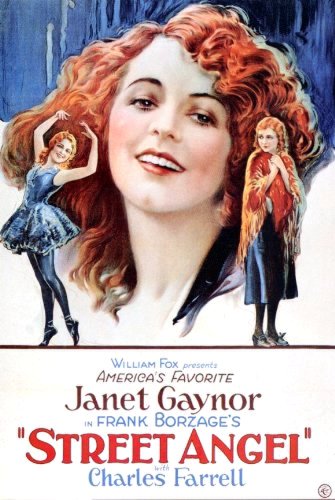

Golden Train Award |
| Best Actor |
| Best Actress |
| Best Film |
Misty-eyed tale of irresistible love derailed by a dark secret from the woman's past benefits from Frank Borzage's flawless, intuitive direction and the touching simplicity of waif-like Janet Gaynor's performance. Farrell looks ungainly beside her, but somehow it works.
Street Angel (1928)What a great surprise!Just as sound was all the talk and all the necessity of Hollywood, and just as Fox Studios has released a quasi-sound masterpiece in the fall of 1927 called "Sunrise," a few months later comes "Street Angel" continuing in a silent mode from Fox's great director Frank Borzage.
'Street Angel' had a good deal of good points. It was one of three films that garnered Janet Gaynor an Oscar that was groundbreaking for being a triple-film Oscar.
In Naples, the young Angela (Janet Gaynor) needs 20 Lira to buy medicine for her terminal mother. She sees the prostitutes on the street and she decides to sell her body to earn the money.
This one has the strengths and weaknesses of the late silent films. It is not as good as 'Sunrise,' but it has some wonderful b/w deep field shots, with a distant town down a mountainside and a busy harbor for a background.
With her ailing mother in need of medicine, pretty poverty-stricken Janet Gaynor (Angela) desperately decides to sell herself for sex on the streets of Naples, Italy. Unable to attract any interested male customers, the innocent-looking Ms.
"Street Angel" is an American 100-minute movie from 1928 and this one was directed Frank Borzage during a time that can maybe be called his most successful from today's perspective. And that means quite something because he was a truly prolific filmmaker and an equally prolific actor, even if he stopped performing in front of the camera already at that point and focused completely on movie-making.
It's a moody and often expressionistic film like Gaynor's "Sunrise" (1927)...which I consider far superior in technique and story.
By the late 20s, director Frank Borzage was really starting to find his rhythm. He was always prolific and his films were largely successful, but his unique brand of romanticism was starting to take inspiration from German Expression and, in particular, the work of F.